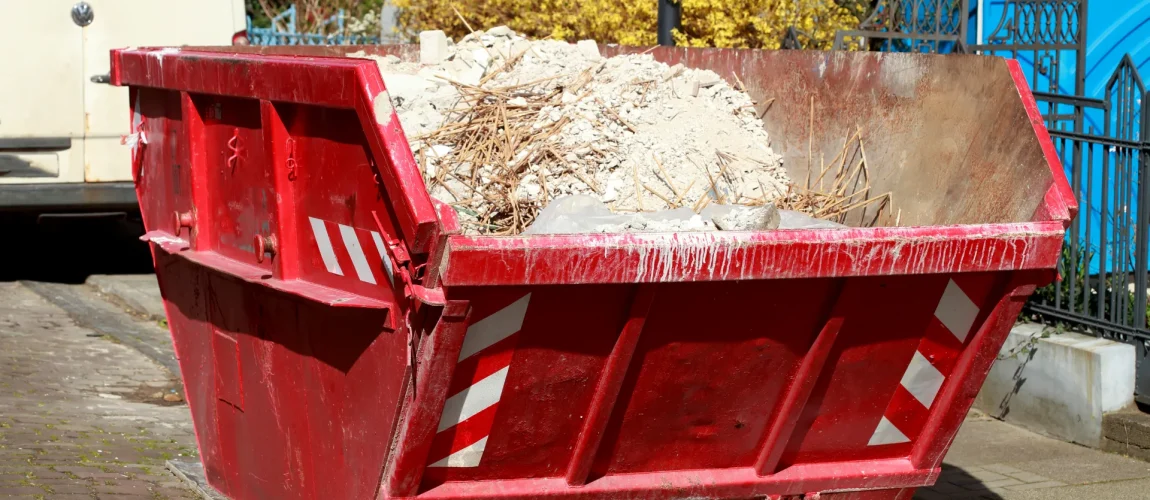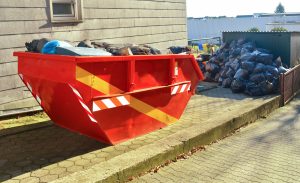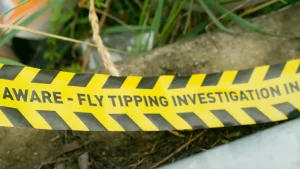Skip hire is an essential service for many households and businesses, providing an efficient means of waste disposal. However, safety is paramount when using skips, especially as weather conditions change with the seasons. Each season presents its own set of challenges that can impact the safe use and maintenance of skips. This guide outlines key safety precautions for skip hire during different seasons to ensure that skips are used effectively and safely throughout the year.
Spring Safety Tips
Spring is a popular time for home renovations and garden clean-ups. With milder weather, it’s an ideal season for various projects that may require skip-hire. However, spring can also bring unpredictable weather, including showers and strong winds. Here are some safety tips for spring:
- Secure Your Skip: Spring winds can be quite strong. Ensure your skip is placed on stable, level ground and is securely positioned to prevent it from tipping over. Use a tarpaulin or netting to cover the skip and prevent debris from being blown out.
- Protect Against Rain: Sudden showers can fill skips with water, making the contents heavier and more difficult to handle. Use a waterproof cover to protect the skip’s contents from rain. This also helps to prevent any hazardous materials from leaking out.
- Beware of Mud: Rain can turn the ground into mud, making it slippery and difficult to manoeuvre around the skip. Ensure the area around the skip is clear and has proper drainage to avoid mud build-up.
- Monitor Wildlife: Spring is a time when wildlife becomes more active. Ensure that your skip is securely covered to prevent animals from getting inside and potentially injuring themselves or spreading waste.
Summer Safety Tips
Summer brings warm weather and longer days, making it a busy season for construction projects and large clean-up jobs. However, the heat and increased activity can pose safety risks. Here are some precautions for summer:
- Avoid Overheating: Hot weather can cause materials in the skip to heat up, potentially creating unpleasant odours or even fire hazards. Avoid placing flammable materials in the skip and ensure it’s not exposed to direct sunlight for extended periods.
- Hydration and Breaks: If you’re working outside and using a skip, ensure you stay hydrated and take regular breaks to avoid heat exhaustion. Encourage workers or anyone involved in loading the skip to do the same.
- Pest Control: Warm weather can attract pests such as flies, rats, and other vermin. Cover the skip securely to prevent pests from getting inside and causing hygiene issues.
- Proper Disposal of Hazardous Materials: Some materials can become more volatile in the heat. Make sure to dispose of any hazardous waste according to local regulations and avoid placing them in the skip.
Autumn Safety Tips
Autumn is a transitional season with fluctuating weather conditions. Leaves falling and shorter daylight hours can also impact skip safety. Here are some tips for autumn:
- Clear Fallen Leaves: Leaves can create slippery surfaces around the skip, increasing the risk of falls. Regularly clear leaves from the area around the skip to maintain a safe working environment.
- Adjust for Shorter Days: With daylight hours decreasing, ensure the area around the skip is well-lit if you’re working in the early morning or late afternoon. Proper lighting can help prevent accidents.
- Prevent Water Accumulation: Autumn rains can fill skips with water. Use a cover to prevent water from accumulating inside the skip, which can make it heavier and more difficult to transport.
- Secure Against Winds: Autumn can bring strong winds. As with spring, ensure your skip is on stable ground and use coverings to prevent debris from being blown out.
Winter Safety Tips
Winter presents unique challenges with colder temperatures, snow, and ice. Ensuring safety during skip hire in winter requires extra precautions. Here are some essential tips:
- Prevent Ice Build-Up: Ice can form on the skip and the surrounding area, creating slippery conditions. Regularly check and remove any ice build-up to maintain safe access to the skip.
- Snow Removal: Clear snow from around the skip to ensure it remains accessible and to prevent any build-up that could affect its stability. Use a snow cover to protect the skip’s contents.
- Wear Appropriate Clothing: Ensure that anyone using the skip wears warm, weather-appropriate clothing, including gloves and non-slip boots, to stay warm and prevent slips and falls.
- Monitor Skip Weight: Snow and ice can add extra weight to the skip. Be mindful of this when loading and ensure the skip does not exceed its weight limit to avoid transportation issues.
- Avoid Overloading: Overloading a skip in winter can be particularly hazardous as wet materials can freeze, making them difficult to remove. Stick to the recommended fill levels and avoid placing heavy, wet materials in the skip.
General Safety Tips for All Seasons
Regardless of the season, certain safety precautions should always be followed when using skips:
- Proper Placement: Ensure the skip is placed on stable, level ground away from traffic and pedestrian paths. Avoid placing it on soft ground where it could sink.
- Load Evenly: Distribute waste evenly within the skip to prevent it from becoming unbalanced. Avoid overloading the skip, which can make it hazardous to transport.
- Secure Hazardous Materials: Never place hazardous materials such as chemicals, asbestos, or flammable items in the skip. Follow local regulations for the disposal of these materials.
- Use Appropriate Signage: If the skip is placed in a public area, use appropriate signage and barriers to alert passers-by and prevent accidents.
- Regular Inspections: Regularly inspect the skip for any damage or issues that could pose safety risks. Address any problems immediately to maintain a safe environment.
By following these safety precautions, you can ensure that skip hire remains a safe and efficient method of waste disposal throughout the year, regardless of the season. Proper planning and awareness of seasonal challenges will help prevent accidents and ensure the smooth operation of skip hire services.







